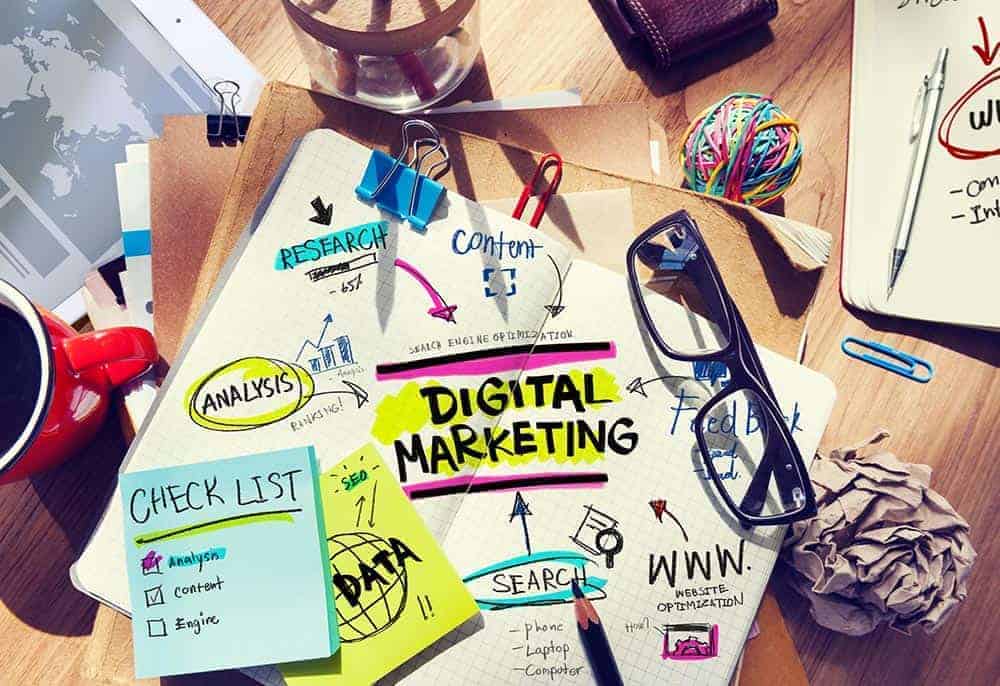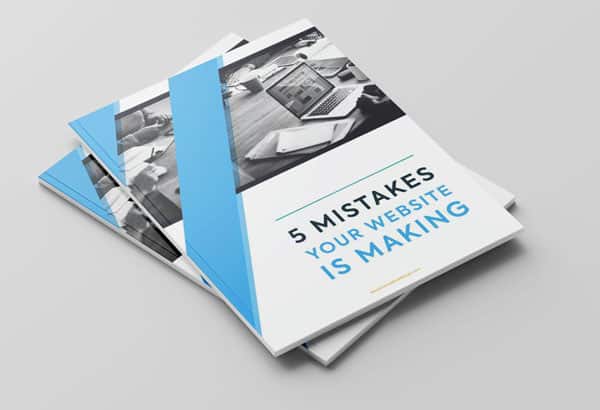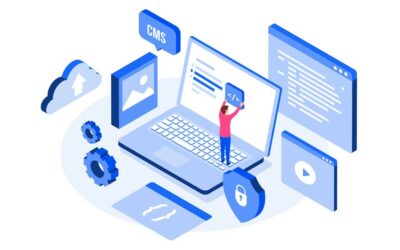In the world of inbound marketing, two concepts stand out in terms of driving traffic to your website: Search Engine Optimization (SEO) and Pay-Per-Click or PPC advertising. One of the most frequently asked questions we get from clients is whether they should opt for SEO or PPC advertising.
At Mountaintop, we want to be firm with our answers. Many inbound marketing agencies play it safe by giving the default response: “It depends”. Our clients deserve a definitive course of action.
Before we give our position on the SEO versus PPC debate, let us do a quick overview on both concepts.
What is SEO?
We have written extensive articles on SEO. You can go back to our previous blogs, “5 Reasons Why Your Business Needs SEO Now”, “The Basics of SEO” and “How to Drive Traffic to Your Website” for comprehensive information on SEO.
But we’ll do a summary of the salient points of SEO so you will have a better understanding of how it stacks up versus PPC.
SEO works to have your website found on the Internet by using a variety of tools, techniques and processes that will move it up the first page of the SERP or Search Engine Results Page.
Organic or natural search remains the number one approach by Internet users for finding websites. Studies by research firm, Forrester has confirmed this statistic over the last six years.
Here are three other noteworthy statistics on the power of organic search:
- Google generates 100 Billion searches every month.
- 61% of marketers say improving SEO and organic search as the main drivers for their inbound marketing campaign.
- 71% of B2B researchers start their study with an organic search.
SEO is a proven way of driving traffic to your website. It has evolved from a process into a system that brings together other online tools like social media marketing, link building and yes, even PPC advertising, to create a dynamic and holistic approach to inbound marketing.
Advantages of SEO
SEO is a process whereby the benefits are realized with consistency. Competing for the first page of the SERP is no easy task.
The market must regard your website as a valuable resource. Therefore, you should be able to identify your market’s needs and wants and consistently provide actionable solutions.
If you want overnight results, SEO will not get it done. The best analogy would be to compare SEO as a marathon not a sprint.
You start out from the back of the field then slowly work your way to the head of the pack with persistence, determination and steely, unwavering focus. As you pass one runner after another, people will start to take notice.
So let us expand our definition of SEO as a long-term investment that works to have your website found on the Internet by using a variety of tools, techniques and processes for the purpose of moving it up the first page of the SERP or Search Engine Results Page.
As an investment, SEO can immediately pay out high value dividends:
- Enhance your reputation as a valuable resource in the field of expertise.
- With organic search, your audience comes to you willingly. It is easier to build trust and therefore gain quality leads.
- The ability to run “long tail” searches, opens up the parameters for being found by your target audience.
For example, instead of searching “Best running shoes”, a long tail search would appear as “Best running shoes for flat feet” can bring a more distinct audience to your website.
If you have a website, you must absolutely invest in SEO. With the amount of competition on the Internet, you have to optimize content for it to be found by your target audience.
Disadvantages of SEO
We have already described SEO as an investment. As such, it requires time, money and effort.
Don’t believe anyone who tells you the biggest advantage of SEO over PPC advertising is that it will not cost you a cent. We are often surprised when we hear clients tell us they heard SEO was for free.
SEO is not a skill that you can master to a level of proficiency by watching videos or reading books. Is it possible? Yes, but the question is, should you do SEO yourself?
And it takes time to gain expert-level proficiency. Time is an asset that is best dedicated to functions that contribute to your business’ bottom-line.
As a business owner, your time should be allocated to handling matters that demand your experience and expertise. That is why many companies hire agencies or third party service providers to manage their SEO campaign.
SEO is also sensitive to changes in algorithm and search engines like to make periodic changes in the way they rank websites.
This is another reason why you need a professional to oversee your website’s SEO strategy. An experienced and proven agency can keep track of all updates, trends and practices on search engine algorithms.
What is PPC Advertising?
Pay-Per-Click Advertising is exactly as advertised. It follows the same principle as traditional advertising where you pay to get your product or service in front of an audience.
Search engines like Google and Yahoo have PPC advertising programs that you can use to generate traffic for your website. Google has Google Adwords and Yahoo promotes Yahoo Search Marketing.
With PPC, the search engine allows you to display ads in the sponsored results section of their respective SERP. You pay a fee whenever a viewer clicks on your ad and lands on your website.
How much do you pay? Each keyword has been assigned a fee which is based on its level of competitiveness.
If SEO works to build your presence, with PPC you pay for your presence.
While traditional advertising takes the machine gun approach in giving a product or service visibility, with PPC advertising your ad will find its way to your target market. The person who clicked on your ad is someone who is looking for a similar product or service.
Here are three interesting statistics on PPC advertising:
- 64.6% of consumers click through a Google ad if they are planning to purchase online.
- Google Adwords has an average conversion rate of 2.7% on the search network and 0.89% via the display network.
- Google Adwords has an average clickthrough rate of 1.91% in search and 0.35% for display.
Just to clarify the statistics, Google Adwords has two avenues for running your PPC ad: the Search Network and the Display Network.
The search network targets users who are searching the Internet. For example, if you are searching for “fitness trackers”, Google will serve you ads that are directly related to your search query.
The display network reaches out to users who are surfing the web; they do not have any specific query in mind. Ads are displayed based on the user’s online behavioral pattern and the advertiser’s targeting parameters.
An advertiser may require a specific demographic, contextual/ keyword search or interest category.
Advantages of PPC Advertising
One of the reasons Google became a multi-billion dollar company is because of revenues from paid search. Businesses want results in the shortest time possible. PPC advertising can fast track the process of building traction for your products and services.
Thus if SEO is a marathon, PPC advertising is a sprint. It has the potential to generate traffic to your website immediately. PPC advertising is an effective way to jumpstart the inbound marketing campaign of your website.
It also allows you to manage your advertising budget effectively by bidding for keywords that you can afford and paying only when someone clicks through your ad.
The benefit of having the search and display networks as options increases the chances of your ad being seen by Internet users.
You could place your ad in websites such as YouTube which consistently brings in a high volume of traffic. If you can position your website in a situation where there is a larger-than-expected flow of traffic, you will be able to run tests on different website variables.
With higher traffic, you will have more accurate data on your website’s level of mobile responsiveness, download speed and built-in functions and features. Higher traffic also increases the probability of sales conversions.
Finally, with PPC you do not have to worry about changes in the search engine’s algorithm.
Disadvantages of PPC Advertising
When preparing an advertising budget, you have to find out how much your competitors are spending for PPC. Keyword choices will have discrepancies in pricing and competitive ones could take you off your budget.
You can use Google External Keyword Research Tool to determine the level of competitiveness as well as the cost per click (CPC) of a particular keyword. The problem with competitive keywords is that these are usually the domain of authority sites which are very difficult to dislodge unless you have the resources.
PPC advertising will not enhance your site’s reputation as an expert. Therefore, it will do very little in driving high quality leads to your website unlike SEO.
You could be the highest bidder for a keyword but if the user sees no relevance or value to your ad, he or she will simply disregard the pole position of your ad and run another search.
With PPC, you could also fall victim to “Click Fraud”. This is an unscrupulous act done by some competitors where they will keep clicking on your ad for the sole purpose of draining your wallet.
Although the search engines have instituted safeguards to click fraud, it goes to show the very real threat your ads face being out in the open on the Internet.
Lastly, PPC advertising is similar to SEO in that it is not a skill where you can build expert-level proficiency overnight. It takes years of experience to become adept at PPC. This is a function that is best outsourced to a qualified third party service provider.
Our Recommendation
Before starting a business, you should be committed to investing in it. We don’t mean just the monetary kind but also time and effort.
It takes time to grow a business. A website, SEO, PPC, social media and other components of inbound marketing do not guarantee success. These are tools that will help your website become more competitive in your industry.
How they contribute to your success will depend on its planning, strategy design and overall implementation. There are absolutely no shortcuts when it comes to building and developing a business.
This is why you must prioritize SEO because of its long-term benefits of enhancing your reputation as a valuable resource and its ability of driving natural, qualified leads to your website.
Remember that when a user conducts a query, the search engine will always present the best results on the Internet, not the company which paid the most expensive ads.
As we stated earlier, SEO has evolved from a process into a system. You can harness the full power of SEO by incorporating its principles with social media marketing, content writing, link building and even PPC.
SEO is used to manage an online paid ad campaign. If you look at any PPC ad, you can see the search results displayed in the main area of the SERP.
There is also the matter of cost to consider.
A recent study published by iProspect showed that CPC is at its all-time highest levels. This was largely because CPC for mobile devices increased by 52% from the previous year.
60% of click throughs come from mobile devices compared to only 32% for desktop PC’s and 8% from tablets. The increase in cost further confirms the need for websites to be mobile responsive.
However, click through rates (CTR) declined by 17% over a one-year period. Coincidentally the fall in CTR was attributed to the underwhelming performance of PPC via mobile devices.
But this does not mean PPC has no place in your inbound marketing campaign. If your budget should allow, you can incorporate PPC at the start up or pre-launch stages. As mentioned, it will help create a higher volume of traffic for your website faster than SEO.
This will present opportunities not just for greater traction, but to test the functionality of your website.
Are you thinking of having SEO and PPC for your website? Done correctly, both approaches can do wonders for traffic generation. If you are interested to learn more about SEO and PPC, please do not hesitate to give us a call or an email.
We can do both for your website. If you wish, we can take you through the process of having SEO and PPC integrated into a digital marketing campaign.
We hope to hear from you soon!







